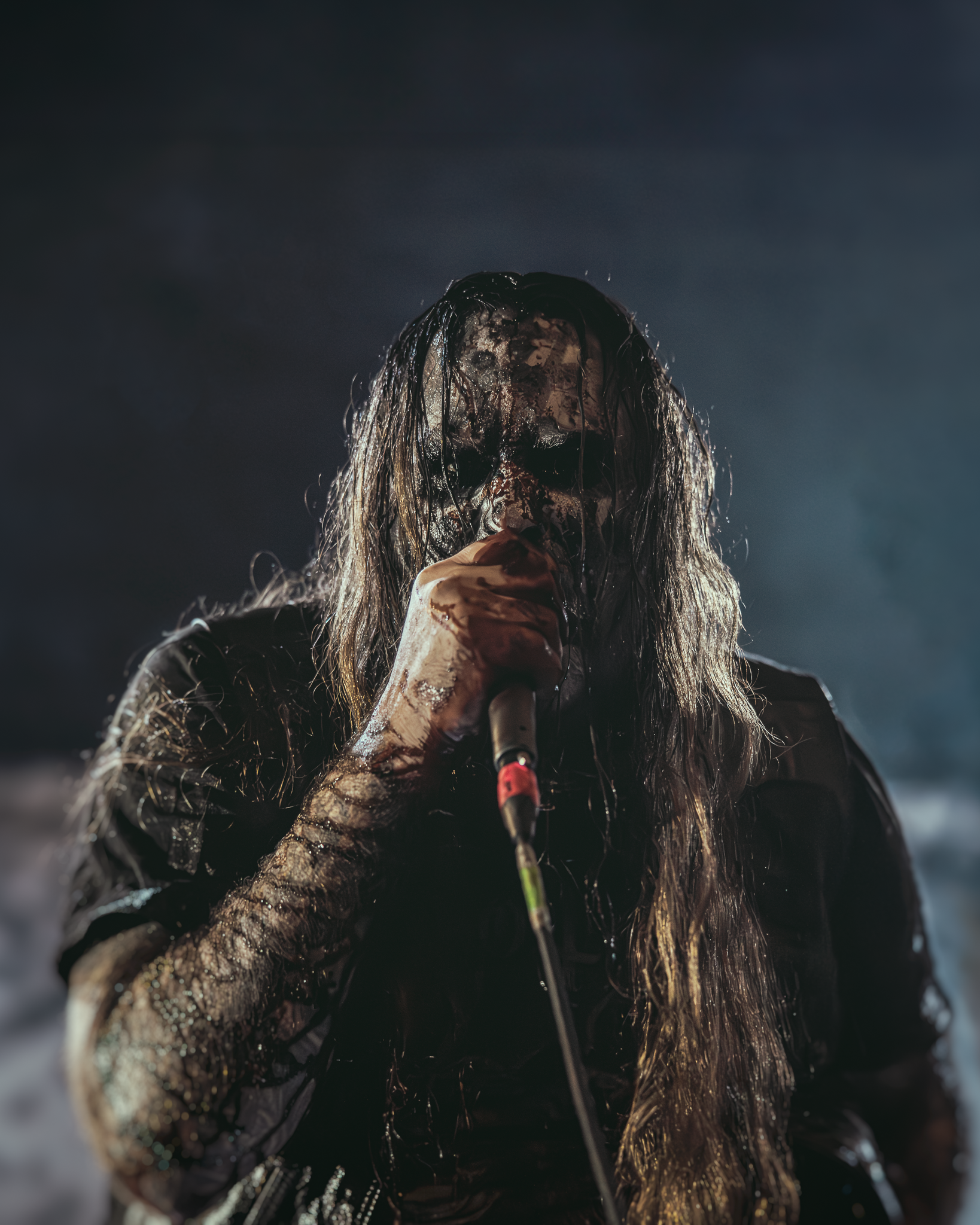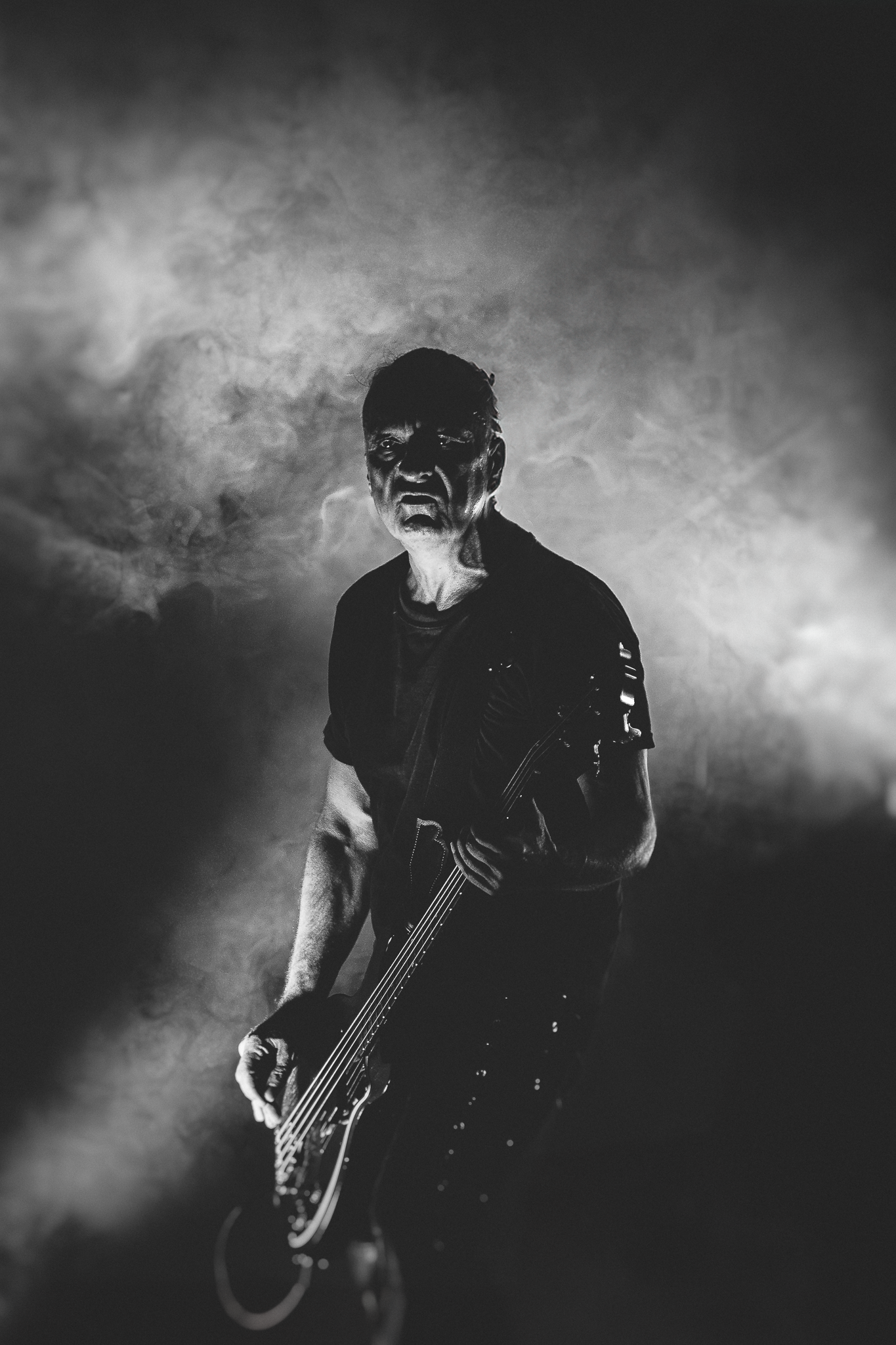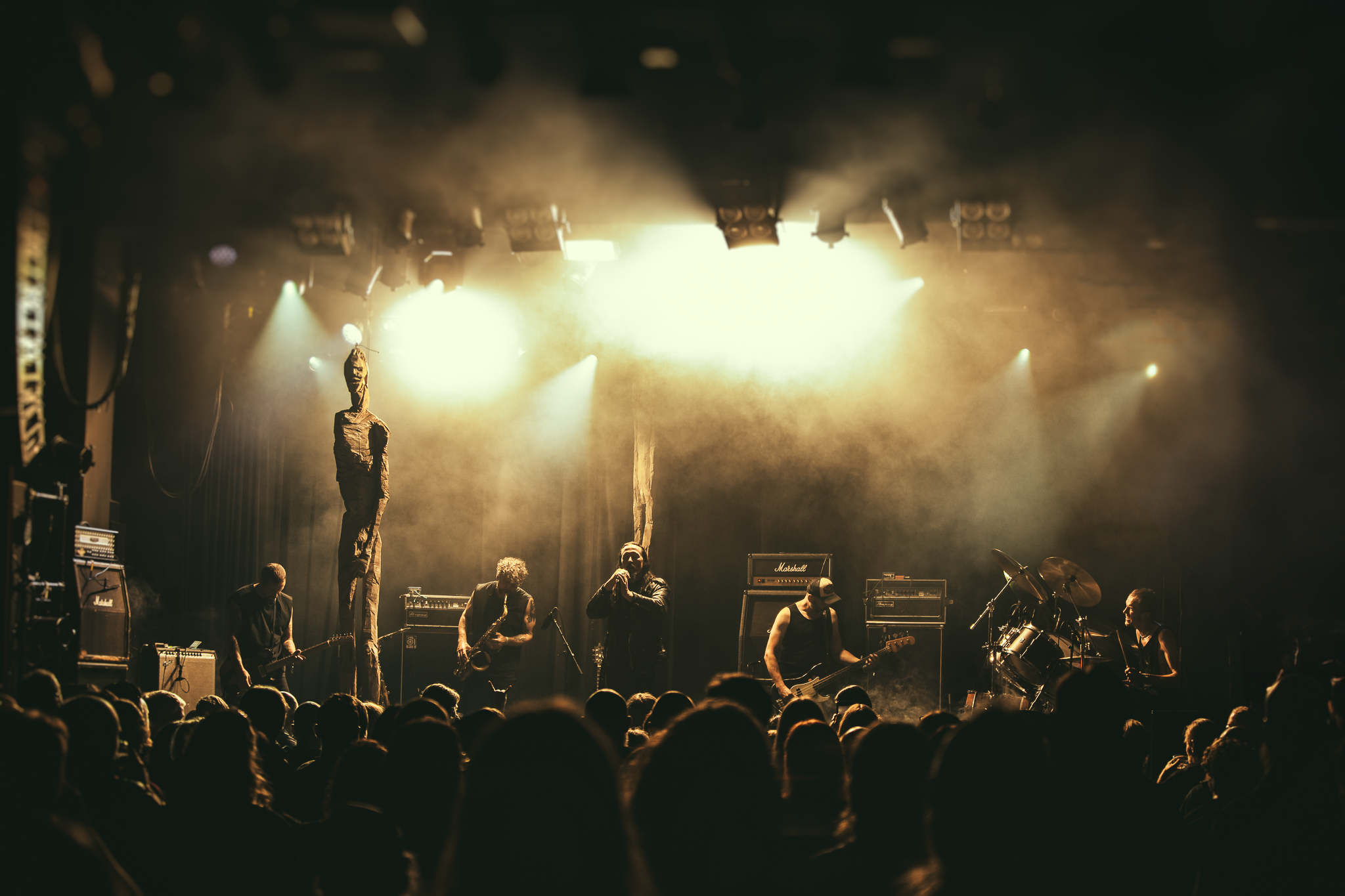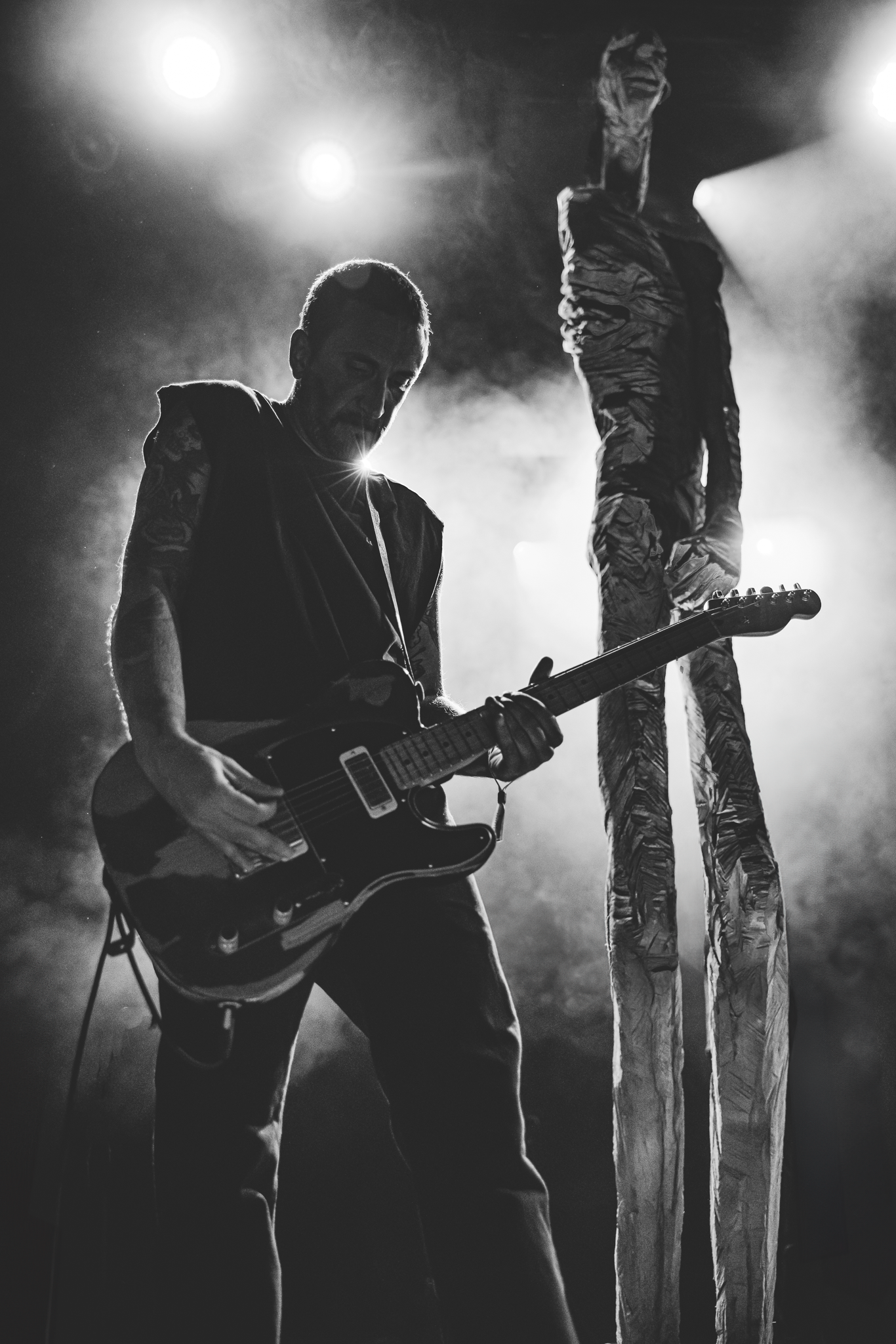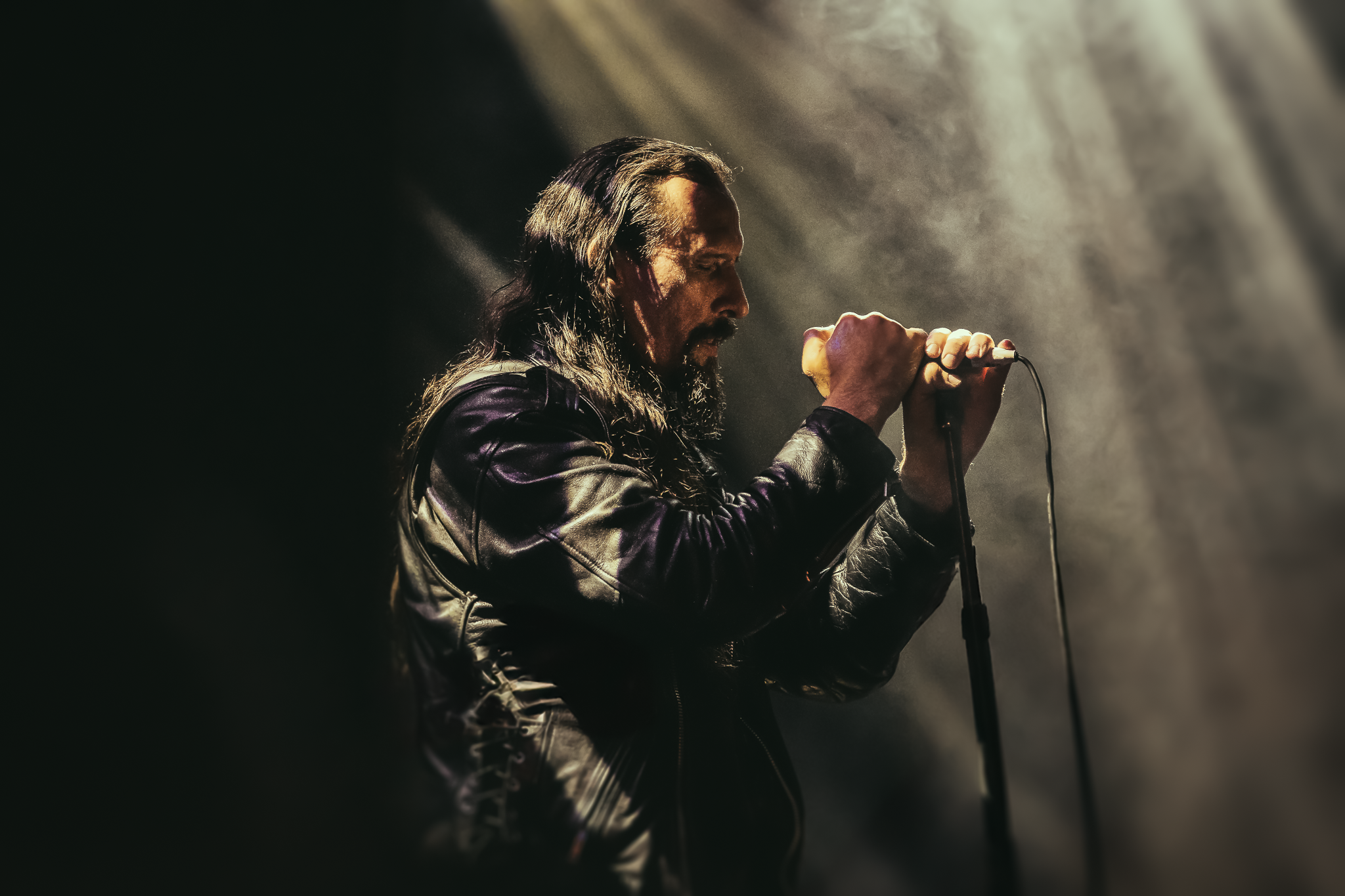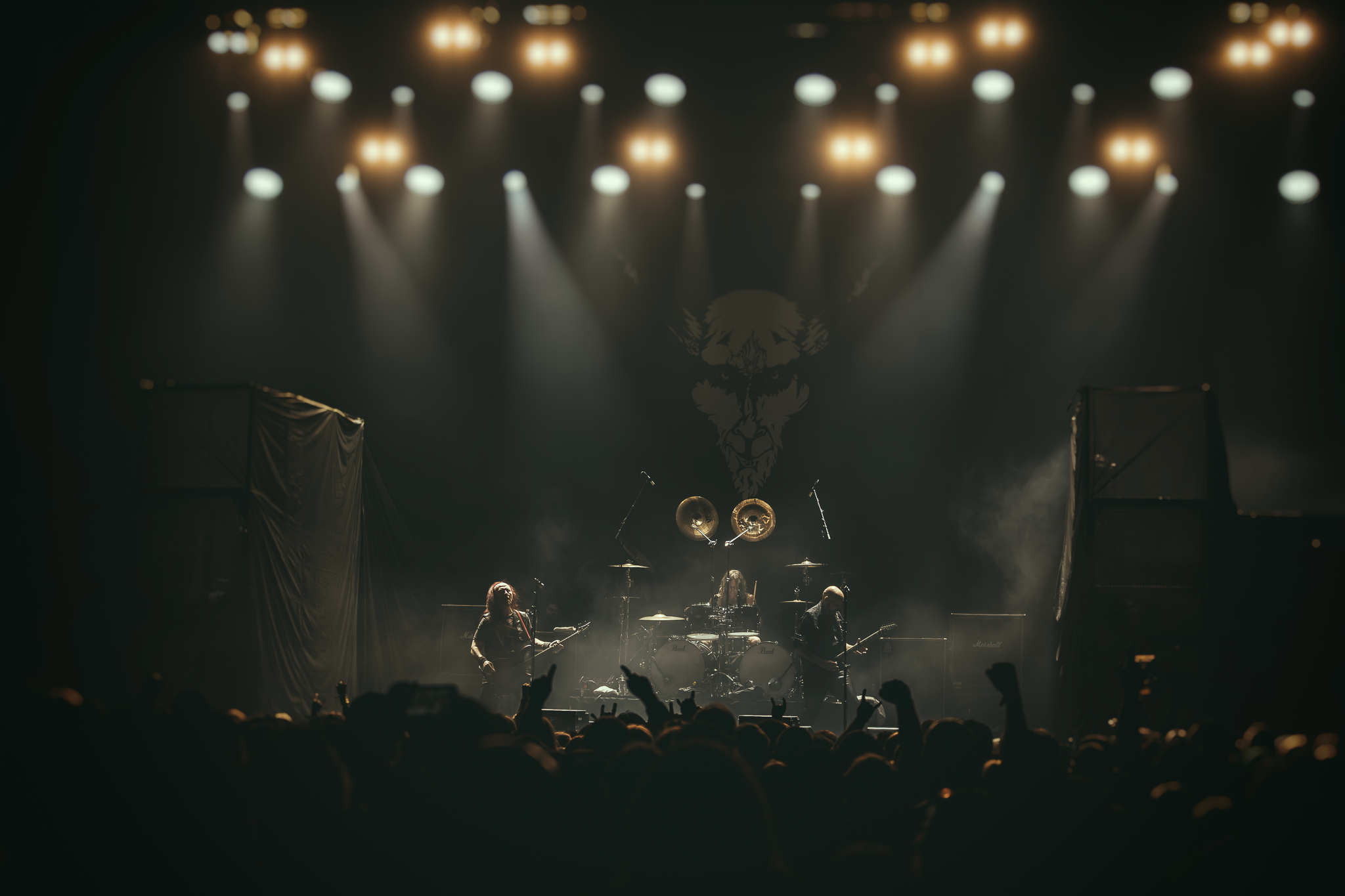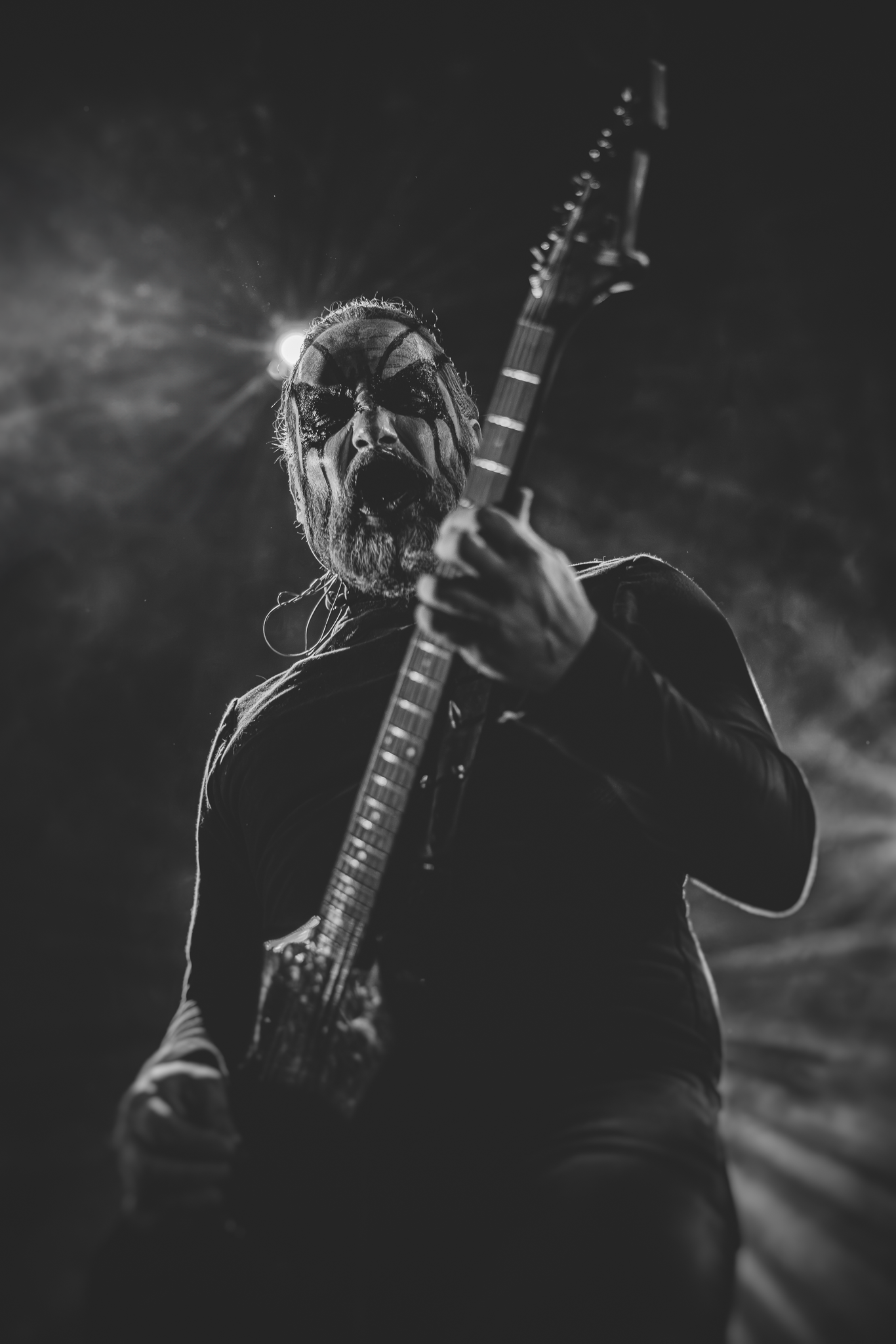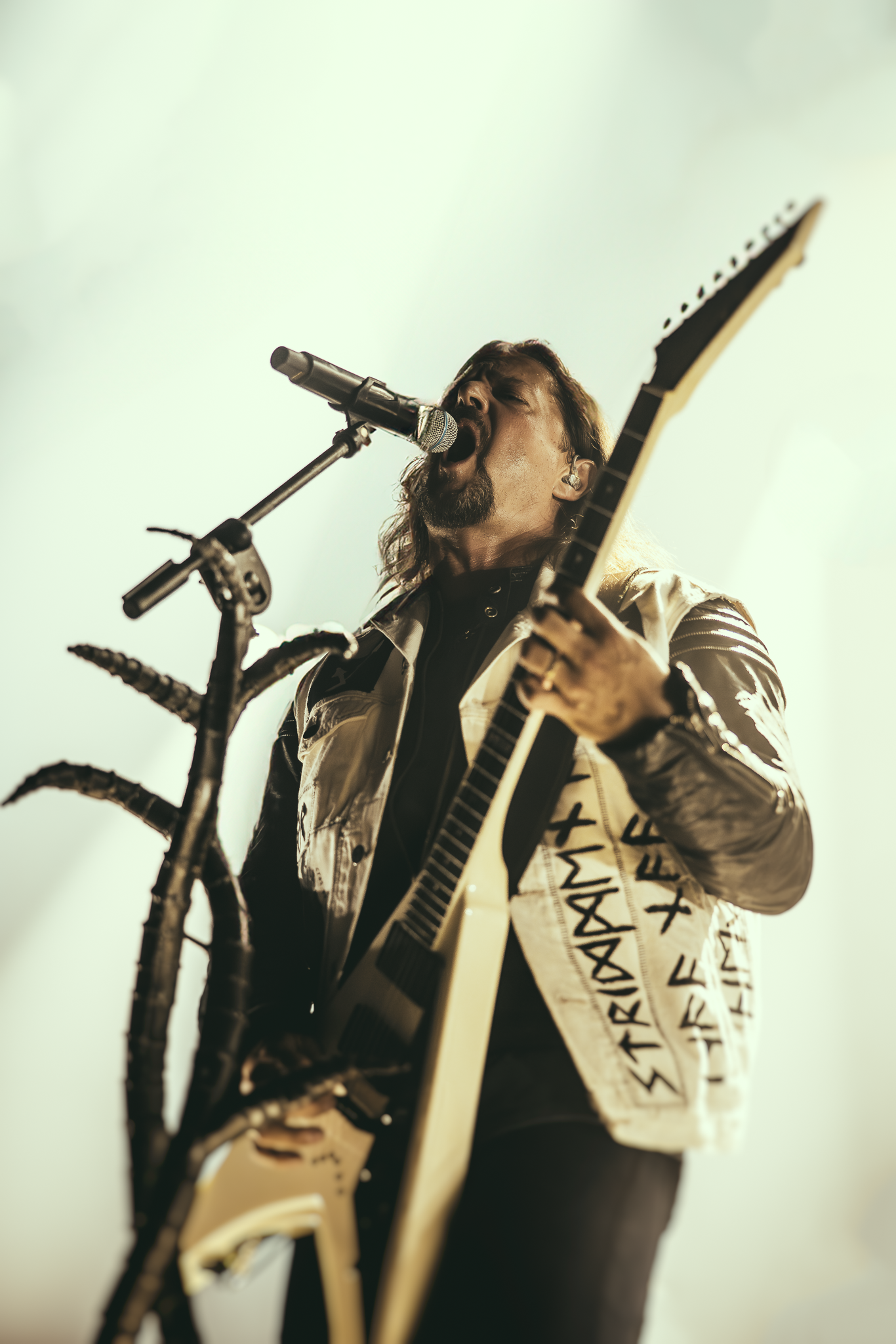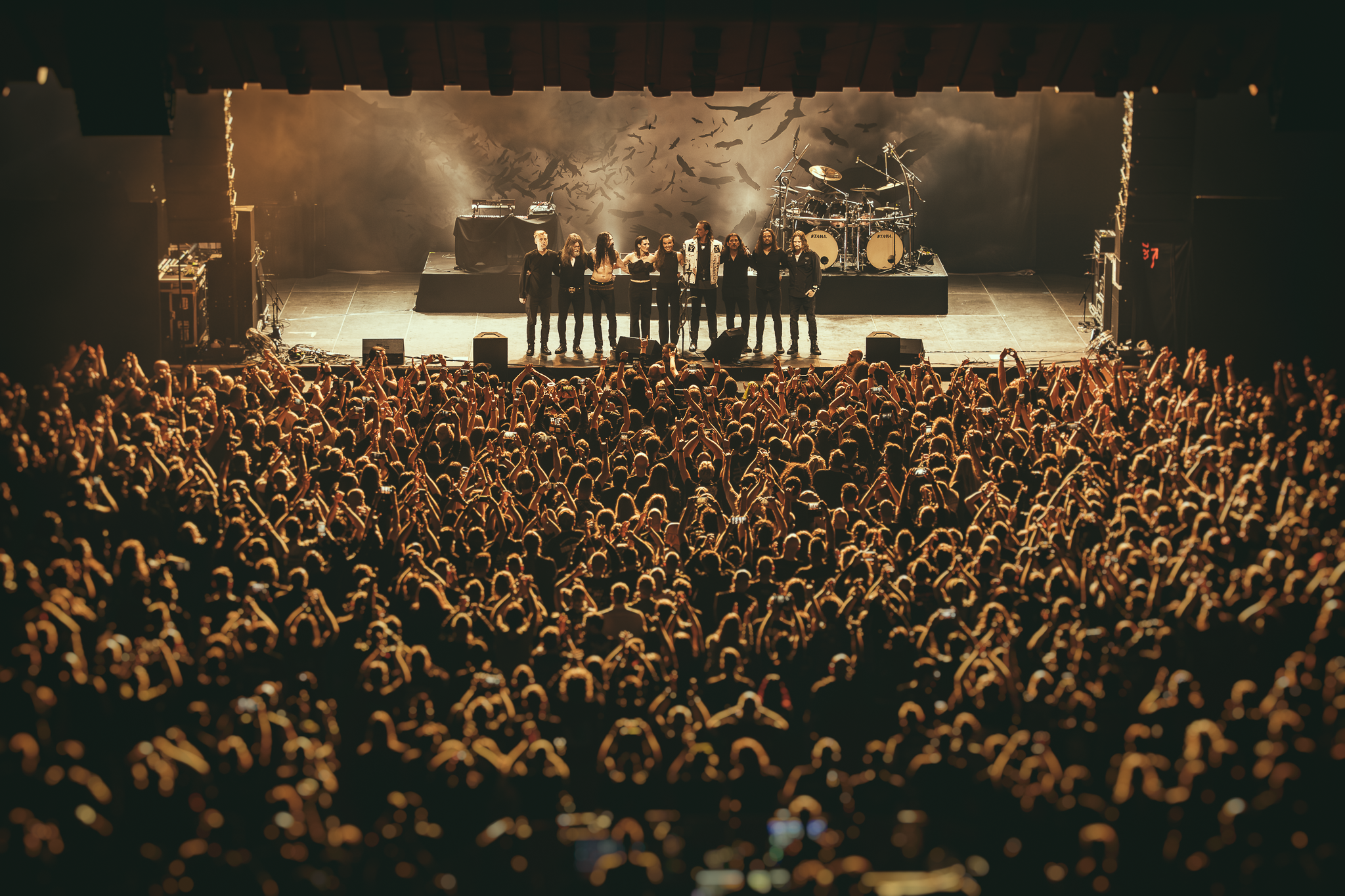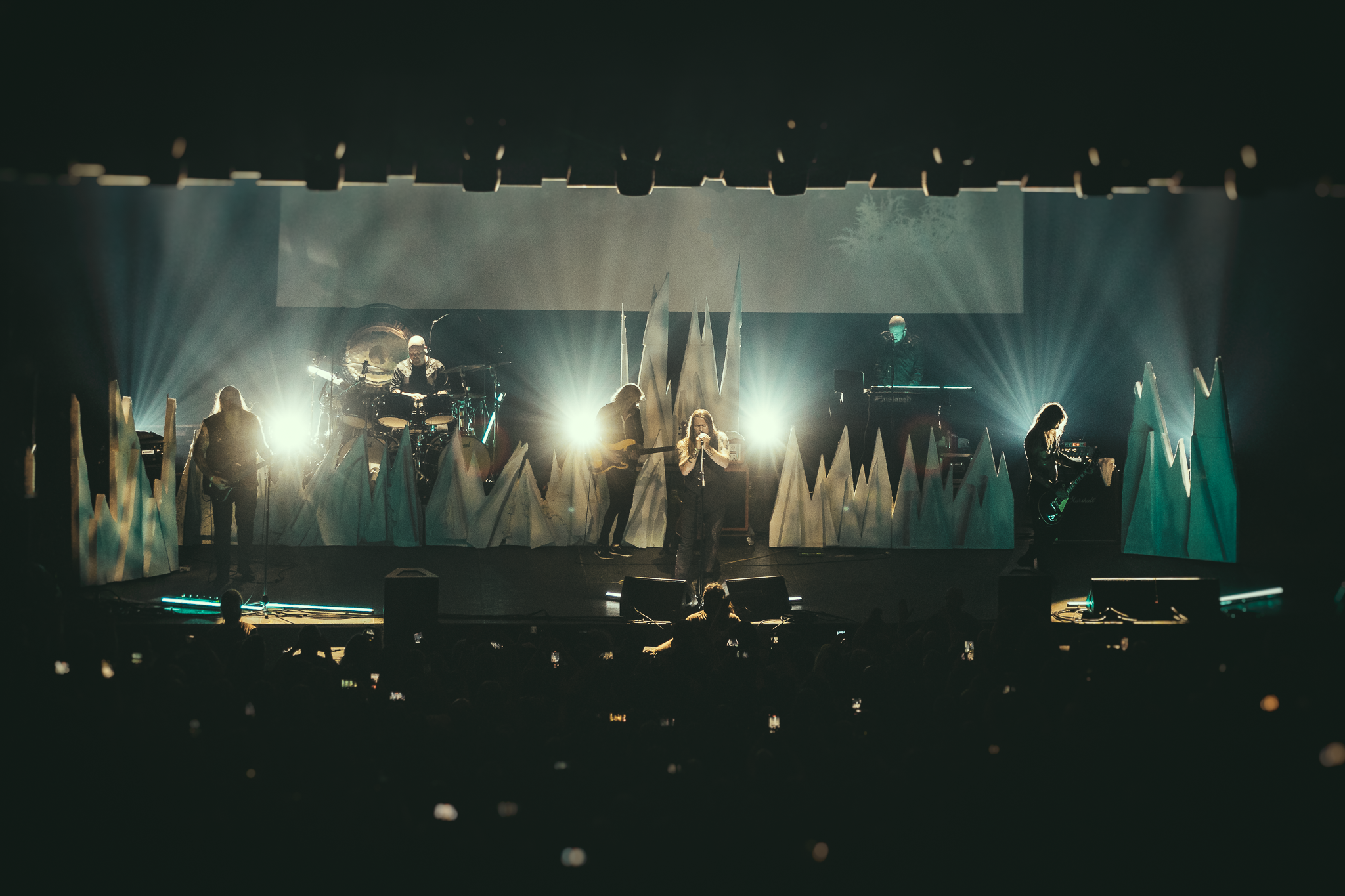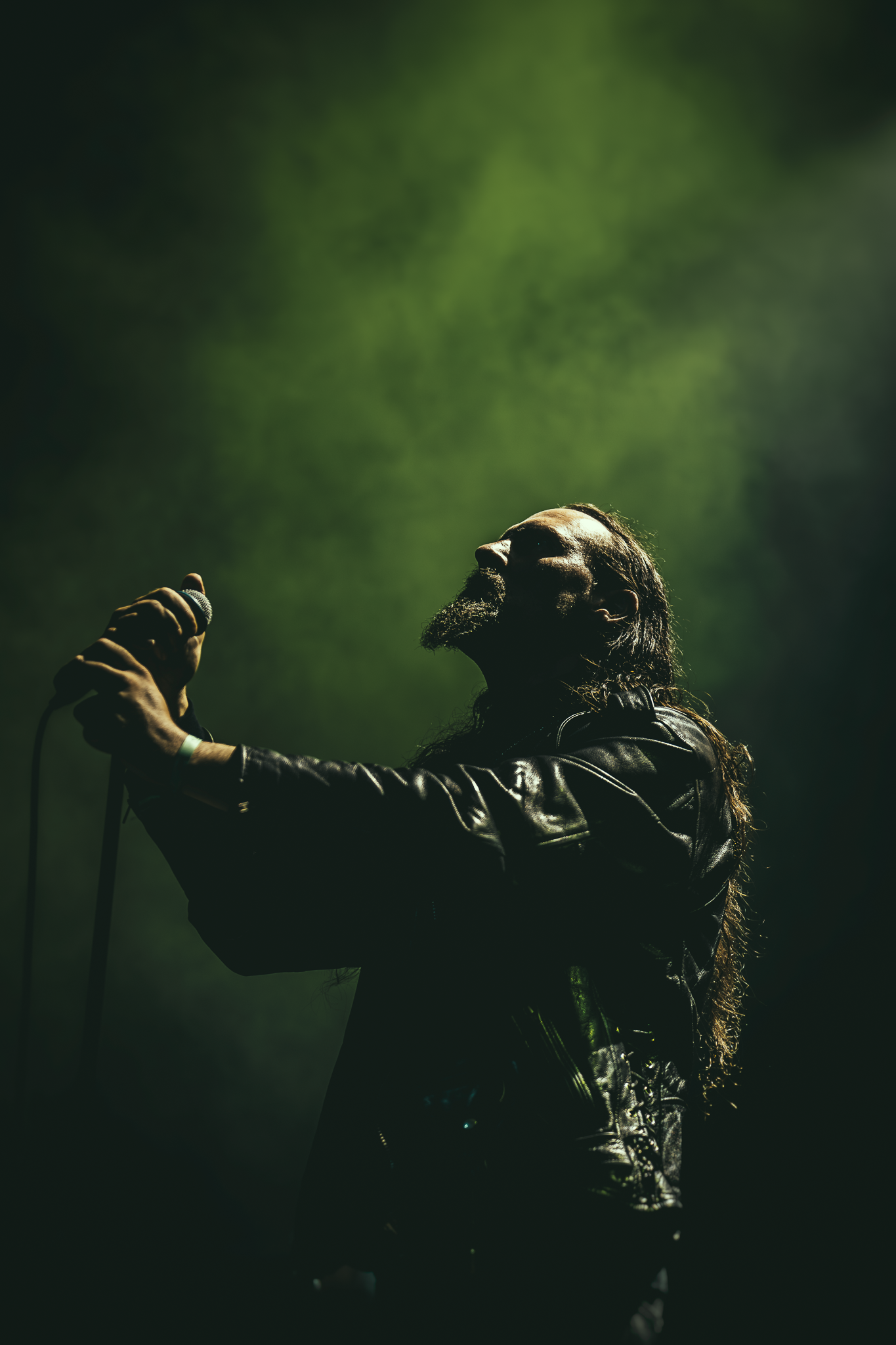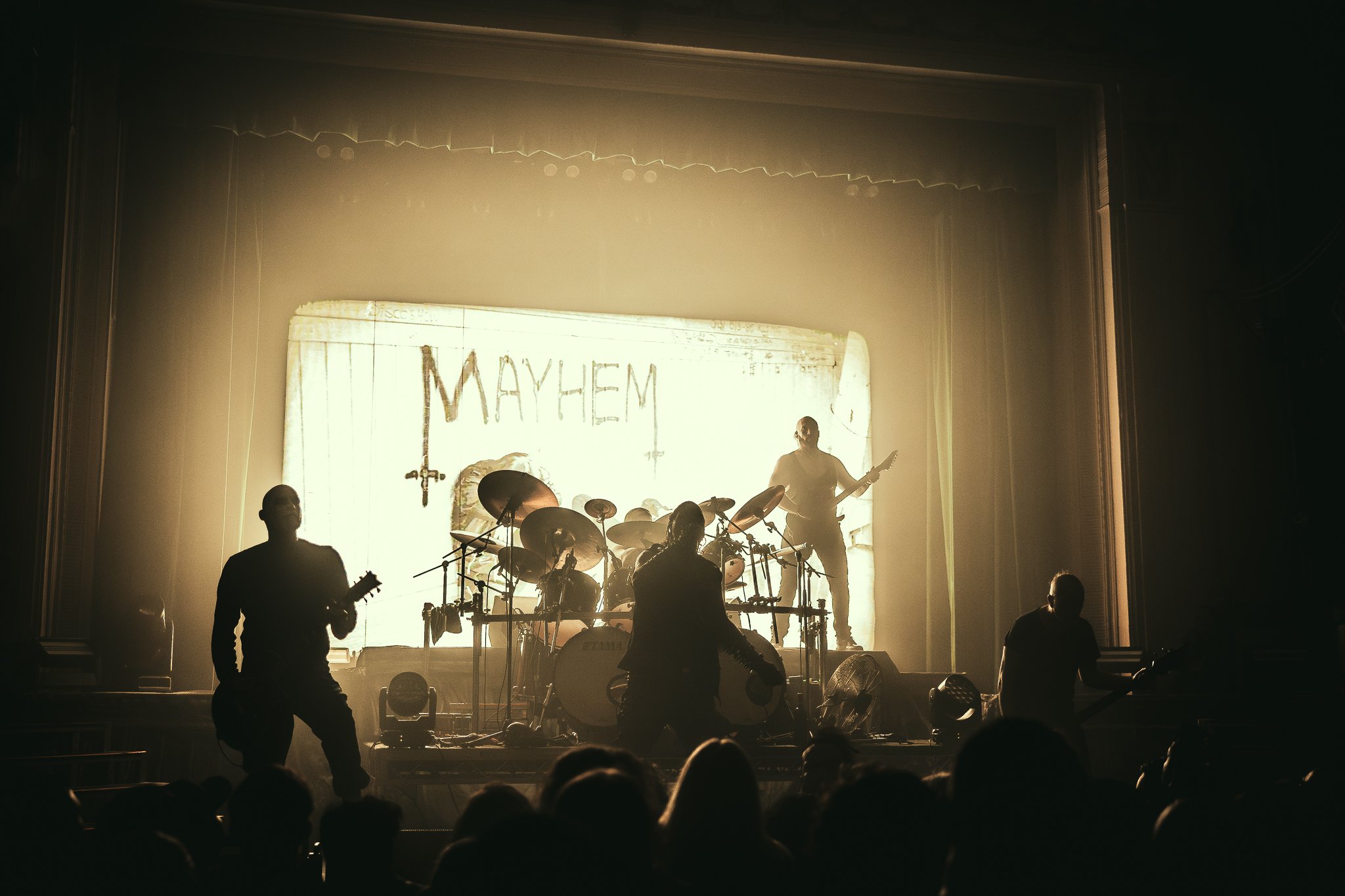Beyond The Gates 2024

photos and words: Nathan Goldsworthy @odin.imaging
Gallery
Joining the increasingly popular pilgrimage from the cold depths of the Australian winter to the haunting embrace of Bergen’s summer, I found myself trading one kind of chill for another. Though it was summer in Norway, the air carried a bite, crisp and damp, like a mild winter's day in Melbourne. The fjords gleamed under a muted sky, and the mountains loomed darkly in the distance, as if watching over the small, gothic city. Bergen wasn’t cold, not in the way winter grips you at home, but there was a palpable darkness that hung in the air—an unsettling, thrilling sort of gloom that felt like it was made for black metal.
Beyond the Gates 2024 was more than just a festival; it was a descent into a mythic underworld. For those of us who’d traveled across continents, it was less about escape and more about immersion—plunging into the roots of black metal’s spiritual home. As I navigated the winding, cobbled-stone streets, Bergen felt less like a city and more like a living entity, humming with centuries-old secrets and resonating with the music that was about to unfold.
Day One: A Baptism by Fire
The first day at USF Verftet hit like a baptism by fire. Whoredome Rife opened the floodgates with a performance that was as unrelenting as the North Sea’s waves crashing against the nearby shores. Their sound filled the industrial venue with a kind of controlled violence, raw and punishing, waking the audience from whatever jet-lagged stupor we’d arrived with. For those who came seeking to have their senses overrun, Whoredome Rife delivered with surgical precision, setting the tone for the days to come.
Manbryne, offered a stark contrast. Their music was less about sheer force and more about atmosphere. It was like watching mist slowly rise from the fjords—slow, creeping, and all-encompassing. Each song felt like an invocation, pulling us deeper into the heart of this strange, haunted place.
Then came Watain, and everything changed.
There are bands that play music, and then there are bands that invoke something far older, far darker. Watain falls into the latter. From the moment they took the stage, it felt like the air around us thickened with sulfur and smoke. Their set wasn’t just a performance—it was a ritual, a summoning of the ancient and primal forces that lurk in the forgotten corners of this world. Flames roared from the stage, casting long shadows across the room, and the music was a torrent of unholy energy, dragging us all into its chaotic embrace. I’ve seen Watain before, but in Bergen, with the mountains watching and the sea whispering nearby, their presence felt amplified, more potent.
But the night belonged to Mayhem.
Celebrating their 40th anniversary, Mayhem’s set was nothing short of legendary. The room vibrated with anticipation as the opening notes of “Deathcrush” rang out, each riff hitting like a hammer blow. This wasn’t just a concert; it was a history lesson, a retrospective of black metal’s most notorious pioneers. The addition of video montages between songs gave the performance a sense of gravitas, a reminder of the band’s turbulent history. And when former members Messiah and Manheim took the stage for the finale, it was like watching a resurrection. The crowd—myself included—was caught somewhere between reverence and disbelief. Mayhem’s set wasn’t just a highlight of the festival; it was a spiritual experience, one that left you feeling hollowed out, yet filled with something far darker and more potent than you arrived with.
As if the night wasn’t already steeped in enough mythology, Gaahl took the stage with Trelldom to close things out. His presence is magnetic—equal parts terrifying and entrancing. As his voice cut through the darkness, it felt less like a performance and more like a communion with forces unseen. Gaahl doesn’t just sing; he channels something older, something elemental, and standing there in the crowd, you could feel it wash over you like a cold wind from the mountains.
Day Two: Into the Abyss
On the second day of Beyond the Gates, something rare and almost magical happened in Bergen—the sun broke through the clouds. It felt like a strange cosmic joke, a brief reprieve from the city's usual grey gloom. Sunlight filtered down through the narrow streets, casting long shadows across the fjords. The warmth was gentle, like early spring in Melbourne, and for a moment, the festival-goers seemed almost human again—smiling, chatting, even lounging in the sun, as if we weren’t all here for a descent into darkness. But in Bergen, the light only makes the shadows deeper.
Venom’s performance was a crash course in old-school extremity. There’s something beautifully unpolished about Venom, something that feels essential in a world where black metal has become so much more refined. They’re raw, they’re filthy, and they’re loud—exactly what they need to be. The crowd was soaked in nostalgia, relishing every riff like it was 1982 all over again.
Behemoth’s performance on Day Two was nothing short of a visceral assault, their blend of blackened death metal crashing over the crowd like a relentless tidal wave. Nergal's commanding presence on stage, paired with the band's razor-sharp execution. Every note felt like a challenge to the light, as if Behemoth was determined to remind us that even under the bright Norwegian sky, darkness reigns eternal.
But for me, the real surprises of the day came from Cult of Fire, Darkspace and Akhlys. Their sets weren’t just about sound; they were about atmosphere, about creating an experience that transcended the typical concert vibe. Cult of Fire’s Eastern-tinged black metal felt almost mystical, as though we were being taken on a journey to some far-off, forgotten temple. Darkspace, on the other hand, was a void—cold, distant, cosmic. Their music was less about connection and more about obliteration, pulling the crowd into a space where time and light didn’t seem to exist. It was like drifting through the abyss, untethered and unafraid. The night finished with Akhlys, a haunting journey through dreamlike soundscapes, blending eerie ambient textures with ferocious intensity
Grieghallen: The Sound of Legacy
Day three brought us to the hallowed halls of Grieghallen, a venue as steeped in black metal history as the bands who graced its stage. Satyricon held a special residency here, playing two nights of completely different sets. Grieghallen is where some of black metal’s most iconic albums were recorded, and standing within its walls felt like stepping into a shrine. The weight of that history was palpable, every note echoing with the legacy of the genre’s origins.
Satyricon’s set was sharp, precise, and full of the cold, mechanical aggression they’ve become known for. I’ve always been a fan, but something about seeing them in Grieghallen, in the heart of Bergen, gave their music a new depth. It felt right, like they were playing not just for the crowd, but for the history that surrounded them.
But the real magic of the day was Enslaved’s performance of *Frost*. To hear the album played in full, in the city where it was birthed, was a profound experience. Enslaved has always walked the line between black metal and something more progressive, more cosmic, and *Frost* is a perfect encapsulation of that. Each song was a journey, pulling the audience through cold, desolate soundscapes, building something bigger than just music.
Day Four: Blood, Fire, and Death
The final day of Beyond the Gates felt like the climax to a week-long ritual. There was an air of finality, of something coming to an end, but not without one last plunge into the abyss. Vreid and Vemod delivered incredible sets, but the true centrepiece was the Bathory tribute, “Blood Fire Death.” Quorthon’s legacy loomed large over the entire festival, and this tribute was the perfect way to honor his contributions to black metal.
Founding Bathory member Frederick Melander joined an extraordinary lineup of black metal legends for a tribute performance that was nothing short of transcendent. Alongside Melander were Gaahl, Erik Danielsson of Watain, Ivar Bjørnson and Grutle Kjellson of Enslaved, Faust from Emperor, Satyr, members of Aura Noir, and a constellation of other all-stars. Together, they didn’t just perform Bathory’s music—they channelled the very spirit of Quorthon, the man who shaped the foundations of black metal. This was more than a concert; it felt like a ritual, a dark benediction bestowed upon the devoted who had made the pilgrimage to Bergen. The weight of that legacy hung in the air, and as the final notes rang out, it felt as though we had all witnessed something sacred—a collective homage to the genre’s roots, imbued with the power and reverence only true believers could summon.
The Dark Pulse of Bergen
Beyond the music, I found myself exploring the city, taking in the dark history of Bergen itself. The Beyond the Gates Experience offered tours to iconic black metal sites, like the infamous Fantoft Stave Church and Grieghallen. Walking through these places felt surreal, like stepping into a part of the genre’s folklore. Bergen’s history is as much a part of black metal as the music itself, and being here gave everything a sense of depth and context that you can’t get anywhere else.
Even the Beyond the Ink tattoo festival, running alongside the music, added another layer to the experience. Fans lined up to mark their bodies with symbols of the festival, black metal’s iconography becoming permanent parts of their skin. I almost got one myself, but time, as always, was in short supply.
Conclusion: A Journey into Darkness
Beyond the Gates 2024 was more than just a festival—it was an immersion into the heart of black metal’s homeland. For those of us who came from the far corners of the globe, it was a journey not just to hear the music, but to feel it, to live it. Bergen itself seemed to pulse with a dark energy that made the music more powerful, more potent.
This wasn’t just a celebration of the genre; it was a reminder of where it came from, and perhaps, where it’s going. Walking away from that final night, with Quorthon’s spirit hanging in the air and the echoes of black metal’s pioneers ringing in my ears, I knew one thing for sure—I’d be back.

